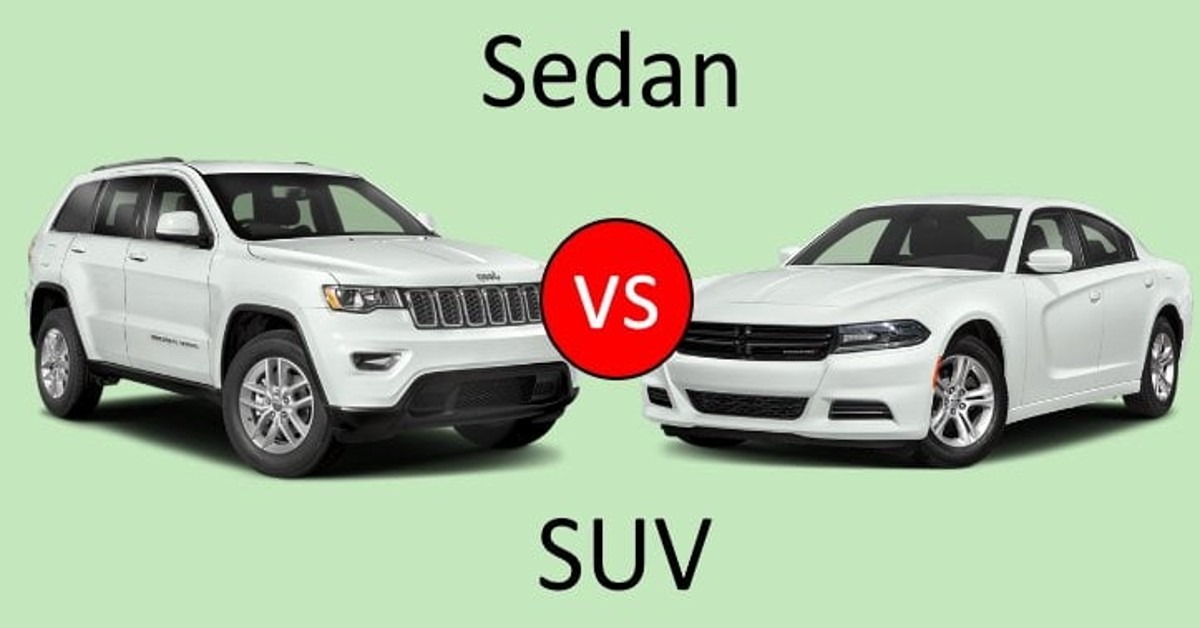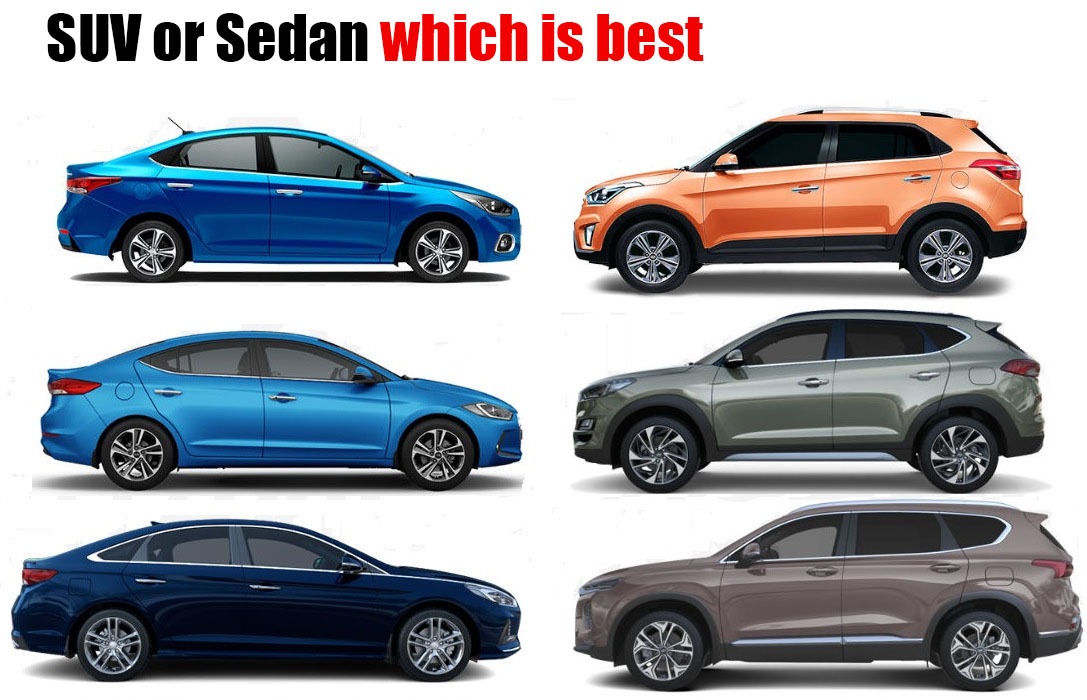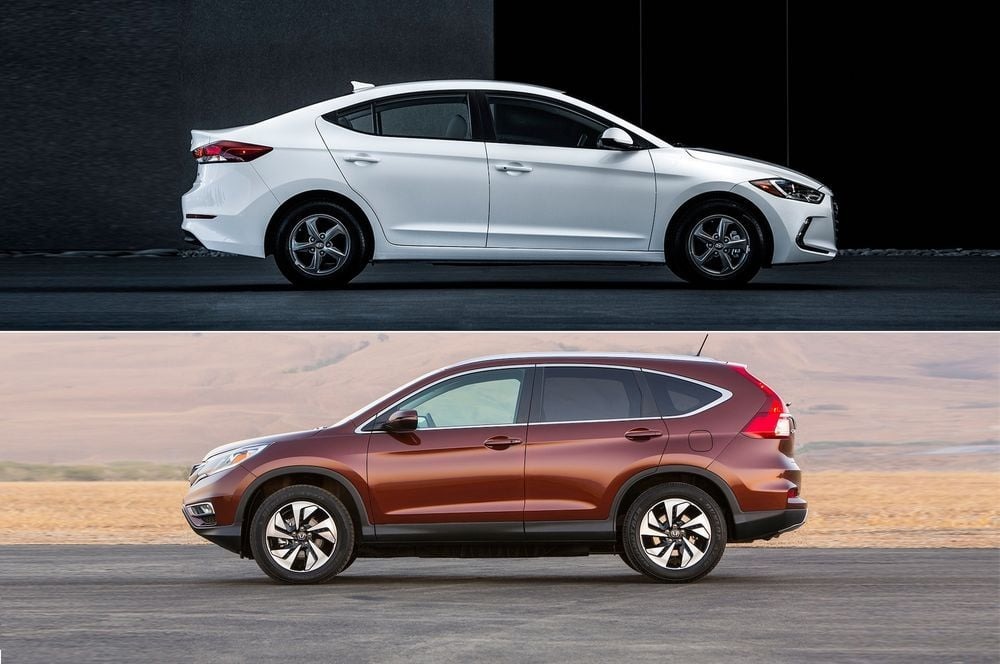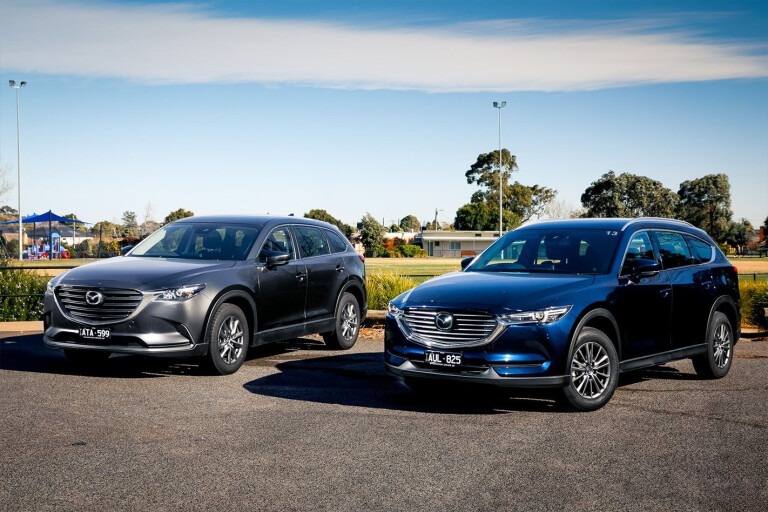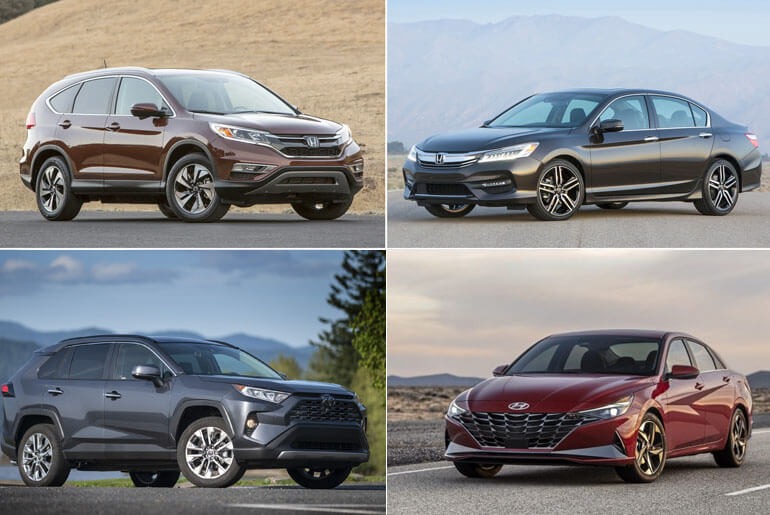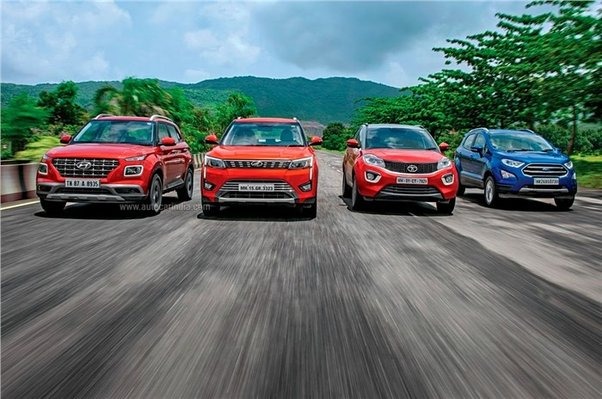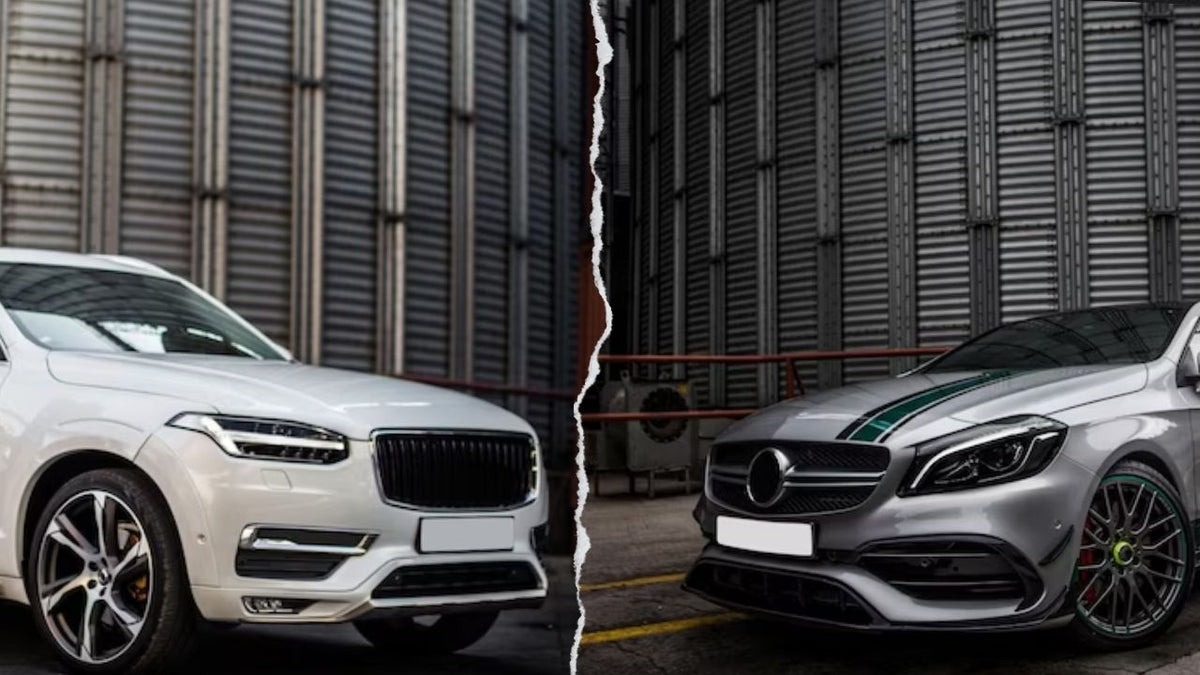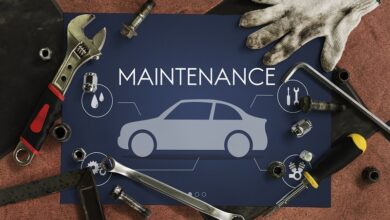Distinguishing Between Sedan and SUV: Which Choice Is Right?

Choosing between a Sedan and an SUV is a decision that often defines the driving experience and lifestyle preferences. Each vehicle type has its own set of characteristics, catering to different needs and desires of drivers. In this exploration, we will delve into the distinctions between Sedans and SUVs, helping you unravel the factors that make one more suitable than the other for your unique preferences. Whether you prioritize sleek design, fuel efficiency, or spacious versatility, this comparison aims to guide you towards making the right choice for your driving journey.
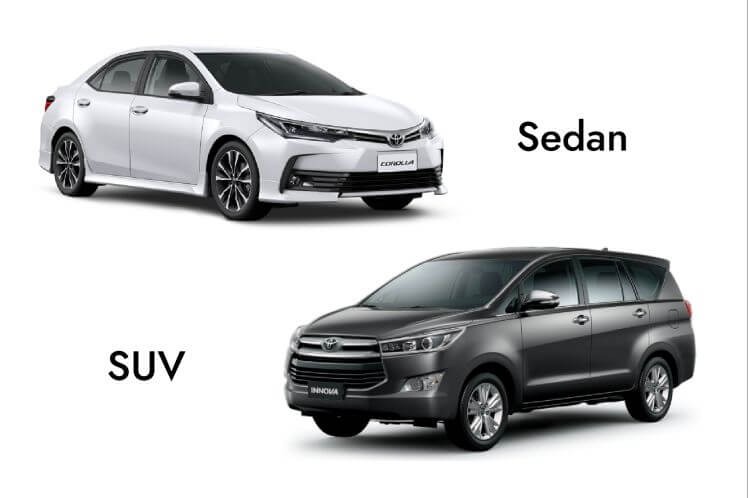
Contents
Introduction to Sedans and SUVs
Before diving into the details, let’s start by understanding what sedans and SUVs actually are.
Sedans, also known as saloons or four-door cars, are the most common type of passenger vehicles on the road. They are characterized by their sleek and compact design, typically featuring two rows of seats and a separate trunk compartment at the rear. Sedans are known for their stylish appearance and smooth handling on the road.
On the other hand, SUVs, which stands for Sports Utility Vehicles, are larger vehicles designed to accommodate more passengers and cargo. They have a boxy shape, with a higher ground clearance and a more rugged exterior. SUVs are built on a truck-like chassis, providing added durability and off-road capabilities.
Size and Space
One of the primary differences between sedans and SUVs lies in their size and interior space.
Sedans are generally smaller in size compared to SUVs. They are designed to be compact and nimble, making them ideal for city driving and parking in tight spaces. Sedans typically offer seating for four to five passengers and have a limited cargo capacity due to their smaller trunk size. However, many sedans feature foldable rear seats, allowing for more flexibility in accommodating larger items.
SUVs, on the other hand, are larger and more spacious. They come in various sizes, ranging from compact SUVs to full-size SUVs. SUVs can comfortably seat up to seven or eight passengers, depending on the model. Additionally, SUVs provide ample cargo space, thanks to their larger interior volume and often foldable rear seats. This makes them a practical choice for families or individuals who frequently transport bulky items.
See more: The Secret to Keeping Your Car Always Shiny Like New
Fuel Efficiency
Fuel efficiency is an important factor to consider when choosing between a sedan and an SUV.
Sedans are generally more fuel-efficient compared to SUVs. This is due to their smaller size, lighter weight, and streamlined design. Sedans are designed with aerodynamics in mind, allowing for better fuel economy on highways and city streets. They typically offer better mileage per gallon, making them a cost-effective choice for daily commuting or long-distance travel.
SUVs, on the other hand, tend to consume more fuel due to their larger size and heavier weight. Their boxy shape creates more wind resistance, resulting in reduced fuel efficiency compared to sedans. However, advancements in technology have led to the development of hybrid SUVs and electric SUV options that offer improved fuel economy while still providing the benefits of an SUV.
Versatility and Utility
The level of versatility and utility offered by sedans and SUVs can greatly influence your decision.
Sedans are known for their comfort and convenience. They are designed primarily for passenger transportation, with a focus on providing a smooth and comfortable ride. Sedans are perfect for individuals or small families who prioritize comfort and luxury over cargo space. Additionally, sedans are often available with various luxury features such as advanced infotainment systems and premium interiors.
SUVs, on the other hand, excel in terms of versatility and utility. Their larger size allows for more seating capacity and cargo space, making them suitable for various purposes. Whether you need to transport your family, go on a road trip with friends, or haul outdoor equipment, an SUV can handle it all. Furthermore, many SUVs come equipped with advanced safety features and off-road capabilities, making them a reliable choice for all types of terrain.
Safety Features
Safety is a paramount concern for any vehicle owner. Let’s compare the safety features offered by sedans and SUVs.
Both sedans and SUVs are equipped with standard safety features such as airbags, anti-lock braking systems (ABS), traction control, and stability control. However, due to their larger size and higher ground clearance, SUVs often provide better visibility on the road. They also offer a commanding driving position, allowing drivers to have a better view of the surroundings.
Additionally, many modern SUVs come equipped with advanced safety technologies such as blind-spot monitoring, lane-keeping assist, forward collision warning, and automatic emergency braking. While sedans also offer these features in higher-end models, they are more commonly found in SUVs due to their popularity among families and safety-conscious buyers.
Cost Considerations
Cost is an important aspect when considering any major purchase. Let’s take a closer look at the cost considerations associated with sedans and SUVs.
Sedans tend to be more affordable compared to SUVs. Their smaller size and simpler construction result in lower manufacturing costs. Sedans also tend to have better fuel efficiency, which translates into long-term savings on fuel expenses. Additionally, since sedans are more common on the market, there is a wider range of options available across different price points.
SUVs, being larger and more versatile vehicles, typically come with a higher price tag. The initial purchase cost of an SUV is generally higher than that of a sedan of similar quality. Moreover, SUVs often consume more fuel and may have higher maintenance costs due to their complex mechanical systems. However, it’s important to note that there are affordable compact SUV options available that offer a balance between cost and utility.
Driving into the Future – The Allure of Hybrid Vehicles
Choosing between a sedan and an SUV depends on various factors such as your lifestyle, budget, and specific needs.
If you prioritize fuel efficiency, maneuverability in urban areas, and a comfortable ride for daily commuting or small families, a sedan may be the right choice for you. Sedans offer style, better mileage per gallon, and often come with luxury features at an affordable price point.
On the other hand, if you require more passenger capacity, cargo space for family trips or outdoor adventures, advanced safety features, or off-road capabilities, an SUV is worth considering. While they may consume more fuel and have a higher initial cost compared to sedans, the utility provided by an SUV makes it a practical choice for those who need versatility.
Ultimately, it’s recommended to test drive both sedan and SUV options before making your final decision. Consider your specific requirements, lifestyle demands, and budget constraints while keeping in mind the key differences outlined in this article. Happy car shopping!
See more at: Topcarr

